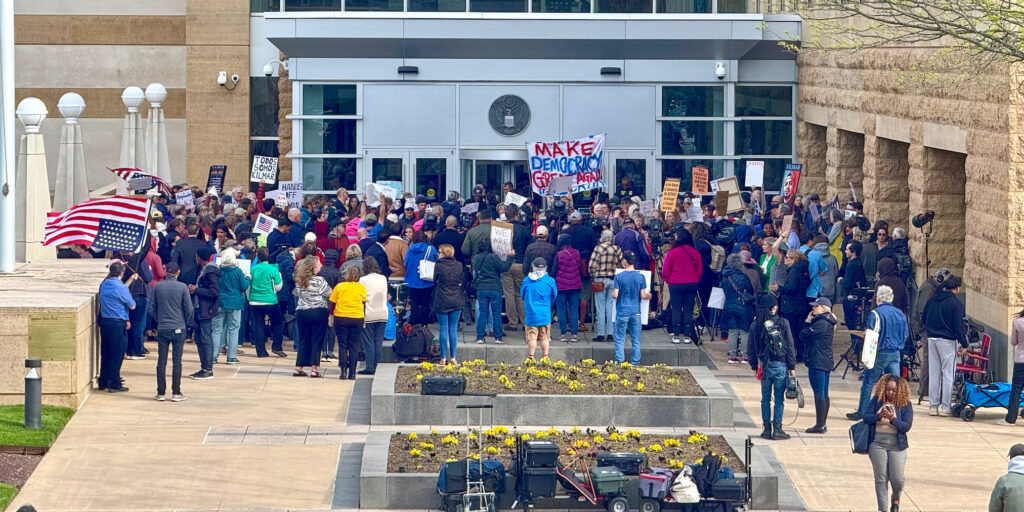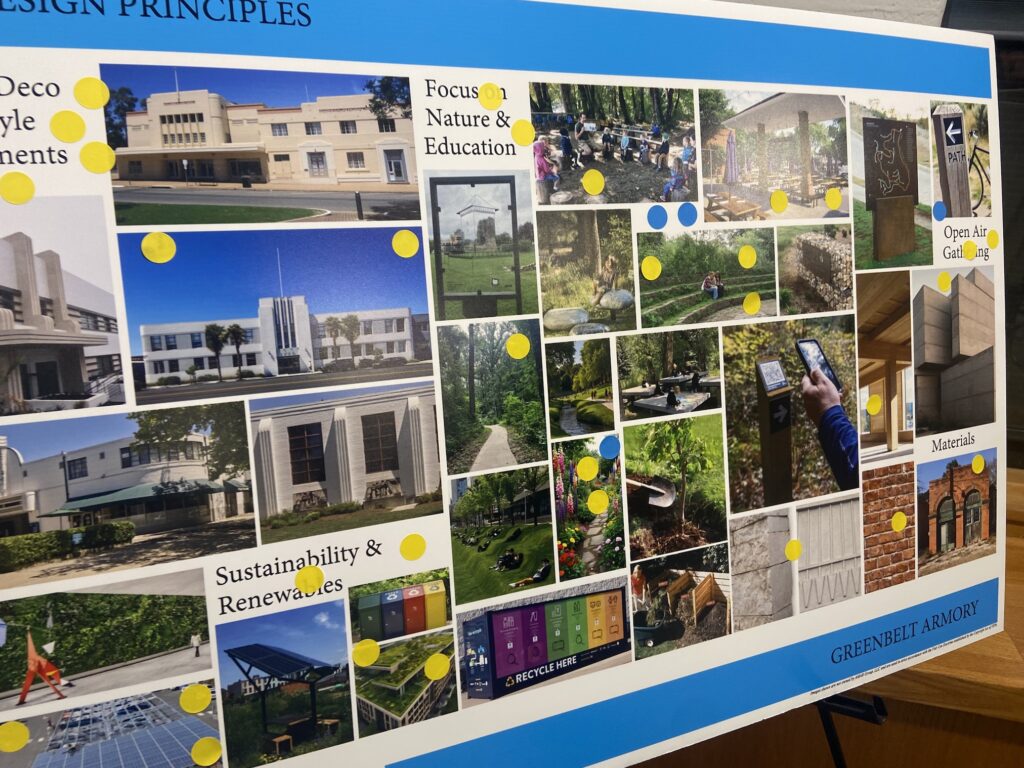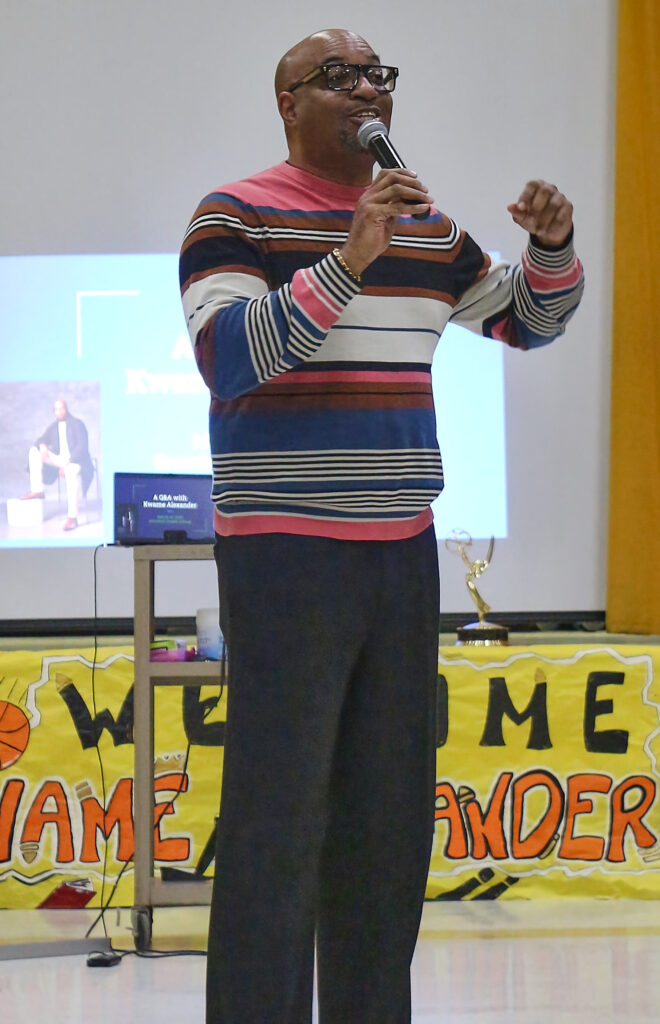Much of the agenda at the March 8 meeting of the Greenbelt City Council involved items added by Mayor Colin Byrd that had not been previously discussed with his council colleagues or reviewed by city staff. These included changes to the procedure for filling council vacancies, term limits for council, a foreclosure moratorium, collective bargaining for all city employees and allowing resident noncitizens to vote in city elections.
In addition, council approved hiring two consultants to assist in reviewing the Draft Environmental Impact Statement for the proposed SCMaglev project. Council agreed to send a letter to the Washington Metropolitan Area Transit Authority (WMATA) opposing proposed future service reductions.
Council Vacancies
Byrd attempted to introduce for first reading a resolution requiring a special election if a council seat becomes vacant nine or more months prior to the next election. Under current city code, council appoints someone to fill the vacancy unless three or more seats are vacant at the same time, in which case, a special election is held. It has been several decades since a council vacancy occurred mid-term. The agenda packet comments pointed out that the agenda item material had not been reviewed by city staff or legal counsel.
Councilmember Judith Davis quickly confirmed with City Solicitor Todd Pounds that this action involves changing the city charter and cannot be done with a simple resolution. She noted that legislation currently being considered by the General Assembly may impose mandatory language on municipalities, which could make Byrd’s proposal premature. She moved to refer the issue to the Board of Elections for comments. In the discussion that followed, council appeared supportive of considering changes to the current language. Council unanimously approved the referral.
Foreclosure Memorandum
Byrd proposed that council direct the city solicitor to draft legislation prohibiting banks/financial institutions in Greenbelt from foreclosing for the rest of the year.
Byrd noted that Governor Larry Hogan has extended the state foreclosure moratorium through the end of March. He stated that this was not long enough and asked for council to discuss how to weigh in on this issue. Byrd acknowledged that he is not sure of the extent to which the city can influence this issue but hoped that council could find consensus for asking the state and federal governments for a longer-lasting moratorium.
Pounds reported that foreclosure law is governed so strictly by the state that he does not know how far a city could go and seemed very doubtful that it could succeed if it tried. Councilmembers, in general, doubted they had the authority to impose a moratorium but appeared open to attempting to work with the state to provide additional relief. Several raised the issue of the need for repayment plans. With the pandemic and economic restrictions now in place at various levels for over a year, both homeowners and renters who had needed forbearance on their mortgage and rent payments now owe substantial amounts. Councilmembers called for allowing them some time to make up those payments.
No specific action was taken with regard to foreclosure.
Council segued into the planned meeting announced in an email sent last fall to commercial apartment owners in which they urged the owners to work with tenants in financial difficulty. This meeting has not been held. Various councilmembers expressed their frustration over the lack of progress on this item and whether a meeting was the best way to deal with the owners, with some councilmembers urging a “get tough” approach and others calling for working with them. In the end, council took no specific action on this item.
Collective Bargaining
In this item, Byrd wanted council to direct the city solicitor to draft legislation to provide all city employees, regardless of department, with the right to collective bargaining similar to what is granted in the city charter to police officers. As he introduced this item, Byrd revised it to refer the issue to the Employee Relations Board and the Community Relations Advisory Board (CRAB).
Council approved the motion but most councilmembers had concerns, pointing out that under state law, employees already have the right to request collective bargaining and that it is not really council’s place to initiate such action and that even actions intended to be helpful could run afoul of labor relations laws and regulations.
Noncitizen Voting
This agenda item would have directed the city solicitor to draft legislation that would authorize residents to vote regardless of whether they are U.S. citizens. At the meeting, Byrd revised the motion to refer it to the Board of Elections and to CRAB. Pounds confirmed that both this and Byrd’s term limits proposal are charter questions.
Davis noted that the issues of who can vote and whether there should be term limits are up to council. Both would require charter amendments and “lots of research.” Byrd noted that there are 10 municipalities nationwide that permit resident noncitizens to vote, with nine of them being in Maryland.
Councilmember Rodney Roberts called for putting these issues on the city ballot this November.
City resident Bill Orleans argued that council should just make the change without referral to the committees or the voters. Davis disagreed, saying this is a controversial issue and council needs to hear from the voters. While Roberts acknowledged that council could take this action on its own, the most important thing is for people to be able to say, “I had a voice in this.” If citizens are not given a voice, it gives them grounds to say the action is not legitimate. He expressed confidence in the outcome, saying that Greenbelters are fair people, and it is important to go through due process and not force this change onto people.
Councilmember Silke Pope strongly objected to allowing anyone who came to the United States illegally to vote. Having been born abroad herself, she said “there is a process, and you have to do it the right way.”
Byrd’s motion to refer to the Board of Elections and CRAB was approved.
Term Limits
The meeting was getting close to midnight when Byrd introduced his next agenda item, this one to limit councilmembers first elected after 2016 to five consecutive two-year terms. In making this a motion, he again revised it to refer the question to the Board of Elections and CRAB.
Councilmember Leta Mach tried to immediately call the question, but her colleagues were not having that. Davis called the exception for the long-tenured councilmembers unfair. Roberts did not like term limits, noting that some things cannot be done in one, two or three terms. He noted that it took 20 years in council for him to achieve his primary goal of establishing the Forest Preserve. In a municipality, he argued, citizens can unseat councilmembers any time they want by voting against them. He said that he would not vote for term limits without a referendum. Term limits would stymie good people who want to make a difference, he said.
Orleans agreed that term limits are unnecessary and called upon citizens to be more attentive to what council does.
Davis’ amendment to hold a worksession passed. Byrd’s amendment to refer the issue of term length to CRAB failed.
WMATA Service Cuts
WMATA has issued a notice announcing its proposed budget for Fiscal Year 2022 (FY22), which begins July 1. The proposal maintains current (pandemic) levels of service through December. However, it calls for major cuts to bus and rail services including eliminating many bus routes, closing the rail system at 9 p.m. instead of 11 p.m., increasing the time between trains and closing 22 stations including College Park – University of Maryland. The proposal predates the passage of the federal
Covid-19 relief bill, which provides aid to transportation systems. It is not yet known how this aid will affect the budget proposal.
Council unanimously agreed to send a letter to WMATA opposing the service cuts and calling for the restoration of bus service between the Greenbelt station and Baltimore-Washington Airport.
Maglev
Council unanimously approved hiring Dr. Burak Tanyu and Smart Mobility, Inc. to provide technical advice and assistance in reviewing the SCMaglev DEIS. The combined cost is not to exceed $29,460.
In addition, council appointed Jacquelyn Waters, Martha Galvin and Jonathan Taylor to the Maglev Task Force.
Proclamations
Byrd presented proclamations declaring March 8 as International Women’s Day, March as National Colorectal Awareness Month, March 31 as Cesar Chavez Day and March as Irish American Heritage Month in Greenbelt.
Petitions and Requests
In an email that Davis reported in the meeting, resident Bob Rudd asked council to begin to meet in person, considering alternate locations such as the American Legion hall or firehouse, if necessary. He suggested that all council meetings and worksessions be conducted in person no later than July 4.
Rudd also called for council to establish a policy that all online council participation include a live video of every participating councilmember. Putens and Byrd typically project a static picture during all or part of zoom meetings. Councilmember Emmett Jordan has used a static picture while out of the city. Rudd stated that failure to present a live image “raises actual and legitimate legal questions as to your participation and empowerment individually and as a collective body.” Further, “No one knows if you are even paying attention.”
Patrick Gleason of the Greenbelt Boys and Girls Club and the Greenbelt Soccer Alliance asked council to consider building another field, preferably a turf field. He said that many of the city’s current fields are unplayable or dangerous, especially after heavy rains. He said that local teams lose players to traveling teams in search of better fields. David Whiteman of the Greenbelt Soccer Alliance and Ian Gleason of the Greenbelt Babe Ruth and Eleanor Roosevelt High School girls soccer supported this request.



